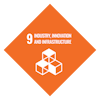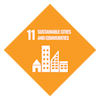PRE EVENT
Land Value and Cadaster - Twins for Transparency of Real Estate in
AI-Times
Date: 23 May 2026
Time: 09:30 - 12:30
Location: TBA
Price: 500 ZAR (approximately 25 EUR)
This joint workshop will explore how integrated data systems,
AI-driven valuation tools, and ethical governance
frameworks can shape more transparent and equitable land and
property systems. The focus will lie on bridging cadastre,
property taxation, and public decision-making
through innovation and international cooperation.
Main themes
- Aligning cadastral and valuation data ecosystems to support
sustainable land use and fair taxation
- Case studies of mass appraisal reforms and digital land
management (urban and rural contexts)
- AI as a co-creator: how intelligent agents support local adaptation
and scenario planning
- Ensuring data integrity and trust through
geospatial infrastructure and blockchain
- Discussion on global standards, SDGs (9, 11, 13,
17), and national implementation pathways
Objectives
- Promote cross-commission dialogue between valuation
professionals and cadastral/land management experts to identify
synergies in AI-supported property systems.
- Present global experiences in integrating cadastral
data with AVMs and public taxation systems, highlighting legal,
technical, and governance frameworks.
- Showcase innovative tools including AI agents,
blockchain-based property data, and dynamic land value modelling for
equitable and adaptive tax reform.
- Foster international cooperation for SDG-aligned
policies (SDG 9, 11, 13, and 17), especially in rapidly urbanizing or
reforming regions.
- Identify research gaps and policy opportunities for
joint Commission 9–7 initiatives and inform a potential joint
publication or FIG policy brief.
Expected outcome
- Set of international best practices
- FIG Standpoint Paper from Commission 7&9 on „Good Cadaster and good
Valuation forces good Real Estate Transparency for a healthy Market”
Why attend
The Pre-event intends to elaborate on the following questions:
- How can we ensure interoperability between cadastral systems and
valuation models to support fair, data-driven taxation?
- In what ways can AI agents and semantic tools enhance land value
capture strategies while remaining transparent and accountable?
- What role can blockchain and trusted geospatial infrastructure play
in strengthening public confidence in cadastral and tax systems?
- How do national case studies (e.g. Cyprus, Poland, Nepal, Turkey,
Greece) illustrate successful or failed AVM/cadastre integration, and
what can we learn from them?
- What ethical and governance principles must guide AI deployment in
land and property valuation contexts?
- How can land and valuation experts work together to promote
resilient, antifragile, and people-centric fiscal systems in the face of
climate change or demographic stress?
Organisers
FIG Commissions:
- 7 - Cadastre and Land Management
- 9 - Valuation and the Management of Real Estate
SDGs involved








